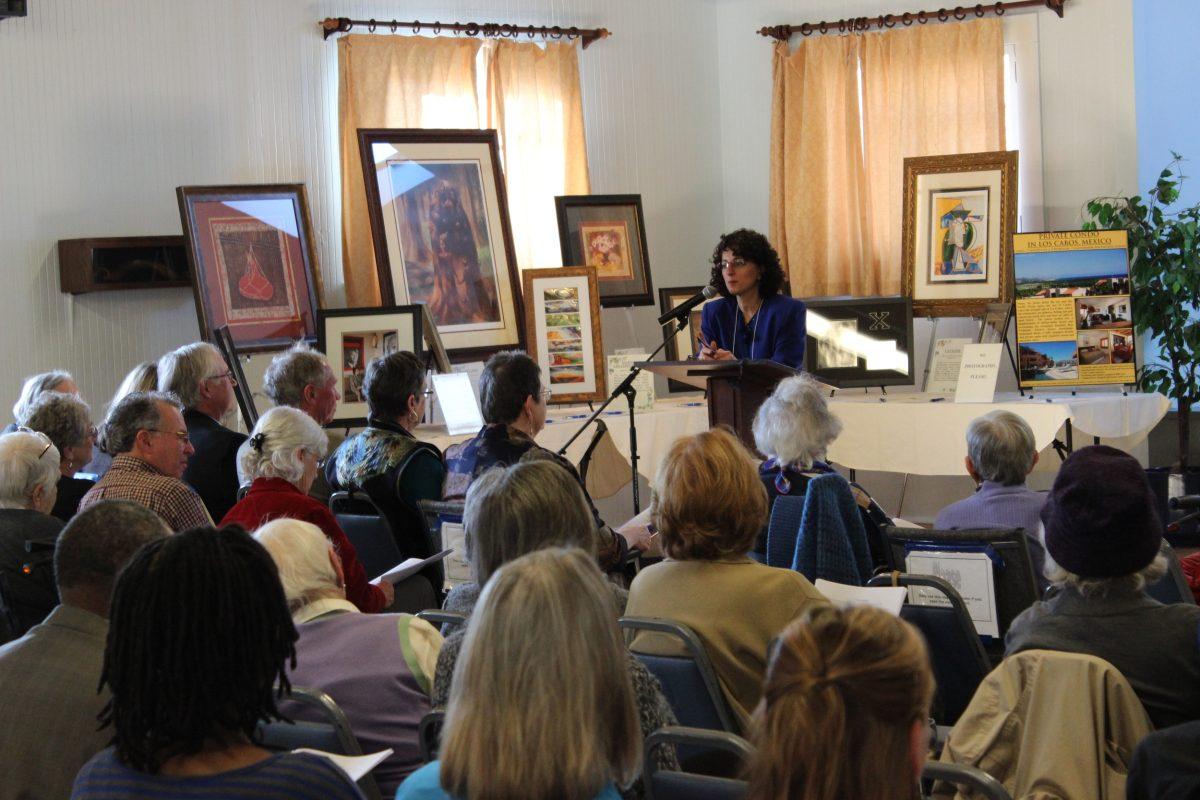This year marks the 30th anniversary of the Holocaust and Genocide Lecture Series, and will be known as “Never Again.” This specific series will not only cover ground about the Holocaust but will go into further detail about the genocides in Bosnia and Guatemala.
The ambassador from the Republic of Rwanda to the United States Mathilde Mukantabana, shared in her lecture the many challenges she has faced and how she became who she is today. She explained what the organization has done for her.
“Rwanda shows that there is hope after a genocide has occurred,” said Mukantabana.
The Holocaust series at Sonoma State University first came about when Sonoma State faculty, Holocaust survivors, and community members came together in 1983 to insure an act like the Holocaust would “Never Again” take place. Their combined efforts and talents led to the creation of the lecture series. This allowed students, professors, and fellow community members to have the chance to listen to speakers talk about the pain and suffering that took place during the Holocaust.
“Students are in a better place to do something significant. They are able to organize and really tackle issues of genocide. Lack of education results to the continuation of the genocide. Students’ actions really make a difference. Eventually, every individuals’ actions will add up,” said Mukantabana. “As cliché as it sounds, genocides will be finished when the world is ‘all of one and one for all’. Goodness as well as badness is contagious. Students from Sonoma State University can make a huge change.”
The Lecture Series is not a one-night event. There have been a series of speeches that have taken place since Jan. 14 and will continue on until April 29. The introduction to the series has already taken place but there is much more to come. There will be lectures on the concept of genocide, the historical aspects of the Holocaust, lessons learned from children of the Holocaust, and then the lecture will switch to an open discussion on genocide.
The Bosnian genocide will also be covered, as well as the Guatemalan genocide. Mukantabana will also lead a discussion on the genocide in Rwanda and how it has developed since.
“To come back [to Sonoma] is to come back home for me,” said Mukantabana, who is a recurring speaker at the university.
In 1983 Sonoma State Universitiy President Peter Diamandopoulos challenged Robert L. Harris, the coordinator, to do more than celebrate the Holocaust one day a year. Harris discussed the president’s challenge with many people and eventually an alliance formed.
“It takes young people to change the world. Of all of the classes students take, they must leave college knowing and understanding the holocaust and the genocide for it to stop,” said Christyne Davidian, president of the Alliance for the Study of the Holocaust and Genocide.
Professor John Steiner, a Holocaust survivor, was the leader of the Center for the Study of the Holocaust and Genocide. This began in February 1987. Steiner wanted to accomplish educating the world one step at a time, about the origins, nature, and consequences of the Holocaust.
“Although you may not have been alive, you still must feel some responsibility as the next generation and hopefully become aware of genocides. There is only one way to do that and it is to take the course,” said Emerita Professor Myrna Goodman of the Department of Sociology, and director of the Center for the Study of the Holocaust and Genocide at Sonoma State University.



































